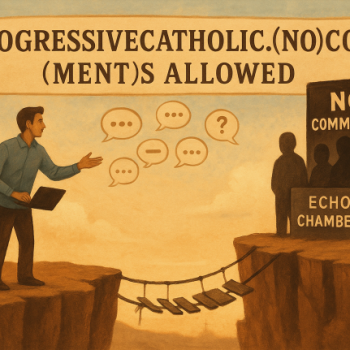Here’s a brand of evil we can stop . . . maybe
Like a recurring nightmare, reports of the beheading of civilians kidnapped by Iraqi terrorists flashed across our newspapers and television screens this week in macabre, horrifying succession.
For any civilized human being, it’s impossible to fathom such merciless violence, such cruelty. And it’s harder still to reason out a way to stop it from happening.
Such is the nature of evil. When you stamp it out in one place, with, for instance, one small group of psychotic kidnappers, it’s sure to pop up again in another place, claiming yet another victim.
This cold reality can engender a paralyzing sense of helplessness.
But there are things we can do to stop evil before it has a chance to grow or spread.
Call it the lesser of two evils, but it may be easier to stop institutionalized violence, such as genocide, than the random acts of a few crazed sociopaths.
I’ve heard it argued that terrorism breeds where there is a sense of hopelessness, that unthinkable poverty and corruption are the parents of violence. I’ve also heard it said that there are more than a few Afghanistans and Iraqs waiting to happen in Africa.
Thursday’s edition of the newspaper Sudan Tribune in Africa reported that some Janjaweed militiamen — the Arab guerrillas who for the last 19 months have been committing horrendous acts of genocide against black farmers in Sudan’s Darfur region — are now serving as guards at the refugee camps that shelter the farmers who have fled for their lives.
An estimated 10,000 Sudanese are dying each month from the Janjaweed violence, as well as the hunger and disease left in its wake.
This week, Sudanese refugees told United Nations High Commissioner for Human Rights Louise Arbour about the Janjaweed in their midst.
“There is widespread belief they are being protected by their very oppressors,” Arbour said during a recent visit to North Darfur.
Allowing Janjaweed murderers, who are backed by the Sudanese government, to guard their victims makes about as much sense as Sudan being a member of the U.N. Commission on Human Rights.
The commission, composed of 53 states including the United States, is supposed to be the guardian of fundamental human rights anywhere in the world. Sudan has been a member of the human rights watchdog posse since 2002.
How can this be? Why hasn’t Arbour or any other U.N. bigwig or member nation demanded that Sudan vacate its seat on the commission?
The United Nations, which is providing humanitarian aid in Sudan, has been woefully slow in responding to the situation in Darfur, which Secretary of State Colin Powell and the U.S. government have finally decided to call a genocide. (Better late than never, I suppose.)
Last weekend, the U.N. Security Council passed a resolution to demand an investigation into the genocide in Darfur and threatened Sudan with possible oil industry sanctions unless it steps up to protect the innocent farmers and reins in its Janjaweed henchmen.
What in the world is the U.N. waiting for?
I suggest you drop High Commissioner Arbour a note, pleading for U.N. action against the Sudanese government. Here are two e-mail addresses you can try: [email protected] and [email protected]. Or spend the 80 cents and send an airmail letter to The Office of the High Commissioner for Human Rights, United Nations Office at Geneva, 1211 Geneva 10, Switzerland.
Change the world one letter at a time if you have to — that’s my philosophy.
We can also apply pressure of a different kind here at home. This week, the U.S. Senate is debating funding for the Millennium Challenge Account, a fund established by President Bush in 2002 to funnel money to 16 developing countries — half of them in Africa — with responsible governments for health and education programs.
The president promised to increase existing development assistance by 50 percent, or about $5 billion annually. The idea, he said, was to ramp up funding each year, starting in 2004, to eventually reach the $5 billion mark.
Last year, Bush asked Congress for $1.3 billion. Congress approved $1 billion. But not a dime of that money has actually made it to the ground in Africa, as the programs and infrastructure haven’t been put in place because of what can only be described as U.S. bureaucratic foot-dragging.
The president has asked for $2.5 billion for the Millennium account in 2005, but the funding senators are debating right now calls for only half of that, about $1.25 billion.
It is just plain cruel — some might even say sinful — to make promises to poor, dying people and not follow through in full.
The structures and programs that could be funded by the Millennium account would work against hopelessness, the kind that, if left unchecked, can breed terror.
“When a building is burning, we drive the fire truck there. But before it’s burning, we’re not thinking of how to keep it from catching fire in the first place,” said Tom Hart, director of government relations for the advocacy group Debt AIDS Trade Africa that has been lobbying Congress to fully fund the Millennium account.
Ask your senator to keep our promise and pony up the cash — all of it — for Africa.
I’ve been taught that we are all God’s children, beloved equally by our creator, and that we all are also our brother’s keepers.
Africa is our family. We have a moral responsibility to ensure its welfare and protection, both as individual people and as a nation that would like to be a moral voice in this fallen world of ours.
It is impossible to do everything, to stamp out evil everywhere that it appears.
But what we can do, we must.















